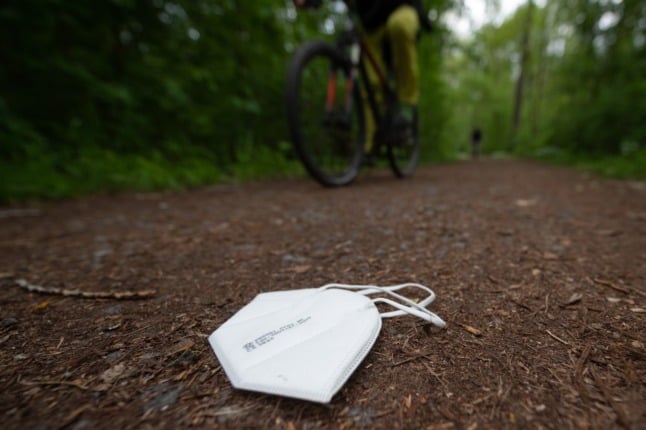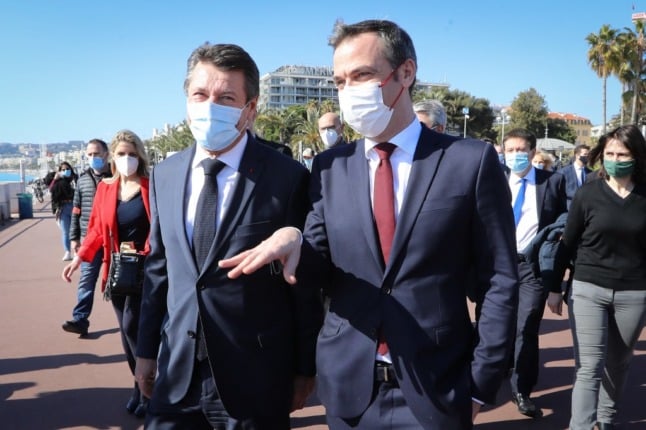However, masks will still have to be worn on public transport as well as in medical facilities and at services like the hairdresser, state Health Minister Petra Köpping said after a cabinet meeting in Dresden on Tuesday.
The state decided that masks will not be needed in areas where the Covid incidence is below 10 infections per 100,000 residents in seven days.
All districts and cities in the eastern state are currently below the threshold of 10, meaning the relaxation will apply everywhere.
The number of cases per 100,000 people within seven days in Saxony stood at 2.2 on Tuesday. Around 122 Covid-19 patients are currently being cared for in Saxon hospitals, with 35 patients in intensive care units.
Although mask rules are being relaxed in many parts of Germany – particularly in outdoor areas – Saxony has become the first state to drop the requirement completely in retailers.
READ ALSO: The new rules on masks in Germany
Köpping said that it was down to Saxony’s low incidence rates, but said this was not something that could be taken for granted. She appealed to the public to remain cautious.
The new regulation applies from Friday until July 28th initially, but may be extended.
Like in many other countries, compulsory masks are a contentious issue in Germany, with politicians debating whether they will still be needed when everyone has been offered a vaccine.
READ ALSO: Masks ‘will be needed’ indoors in autumn, says German Health Minister
Negative test after vacation or home office
Saxony is also bringing in a new rule on tests for unvaccinated people.
Anyone who has been on holiday for more than five days must present a negative test when they return to work. This also applies to employees who have been working from home. Vaccinated people and those who’ve recovered from Covid are not included.
This rule comes into force on July 26th.
Vaccination centres without appointments
The state also wants to make it easier for people to get jabbed. So from Wednesday, residents do not need an appointment for a vaccine at any time of day.
“You can just go to the vaccination centre and be vaccinated,” said Köpping. So far, residents could be vaccinated from 2pm in centres without an appointment.
Saxony is the only federal state that had not yet reached the 50 percent quota for first doses. According to the Robert Koch Institute, 49.9 percent of people in Saxony have received at least the first vaccination, 40 percent are fully vaccinated.
In Bremen, 67.8 percent of residents have been given one jab. Saarland has the highest vaccination rate (47.2 percent) for the fully jabbed, while Brandenburg is trailing behind with 39.2 percent of residents being fully vaccinated.



 Please whitelist us to continue reading.
Please whitelist us to continue reading.
Member comments